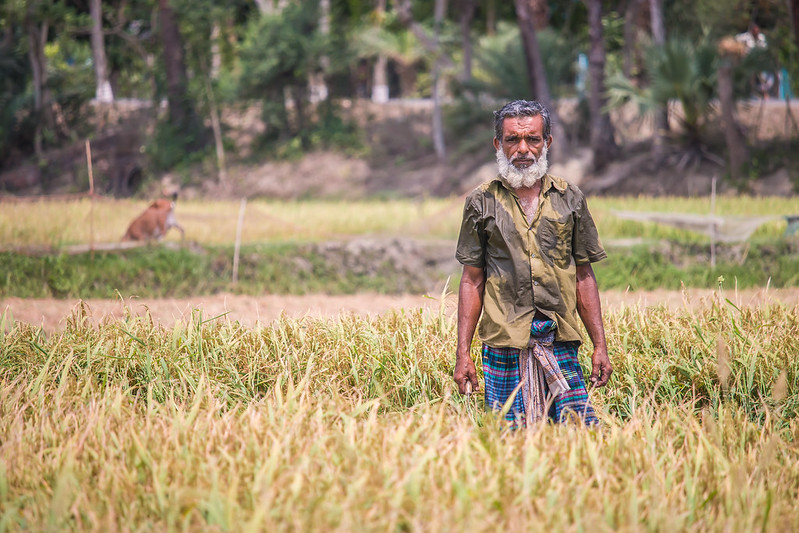The event “Mainstreaming the Land Rights of the Rural Poor in the Climate Agenda” took place on June 6th, 2023 and featured three speakers. The event was organized by a team of organizations, including the Land Portal Foundation, the Global Forum on Agricultural Research and Innovation (GFAR), the Asian NGO Coalition (ANGOC) and Young Professionals for Agricultural Development (YPARD).
The session was organized because there is little awareness and little reflection in adequate policies about the link between land tenure rights, resistance to climate change disasters and climate change adaptation and mitigation. The event was also organized around three main perspectives, the civil society perspective, the data perspective and the youth perspective.
Valeria Pesce - GFAR and Genna Tesdall - YPARD moderated the panel, which featured the following speakers:
- Don Nathaniel Marquez, ANGOC
- Romy Sato, Land Portal
- Gcina Dlamini, YPARD
Please see a brief recap of each of the three main perspectives and watch the replay at the bottom for the full captivating conversation.
-
What are thoughts and perspectives of civil society organizations in Asia working on land rights, food security and sustainable agriculture on the topic of this side event?
Don Nathaniel Marquez: Many of the world’s poorest who depend on land for their livelihoods are found in Asia, thus land rights are central to reducing poverty and hunger in our region. At the same time, Asia is a region most prone to natural disasters and while climate change affects everyone, those who are poor and lack land tenure rights are the most vulnerable to the effects of climate change. There is still a gap in the literature in understanding the links between land tenure and the current literature focuses on the macro and physical impacts of climate change rather than paying attention to the social impacts of climate change from the perspective of poor people. This affects their access to livelihoods, social relationships and security of tenure on the land. In 2020, ANGOC and seven of our partners in Asia prepared a discussion paper on this topic. We should build a better appreciation of land tenure issues in climate change discussions; need for inclusive governance to reframe the policy discourse on climate change; address land tenure in natural disasters and ensure and engages stakeholder participation in the discourse of climate change.
-
What is the importance of data governance in enhancing the land-climate nexus?
Romy Sato: Can we make the connections between the large amounts of data we have, towards development goals? This is the framing and the context in which the Land Portal is working and to push for land rights. If you look in the land sector, we have both too much and too little information. On the one hand, there is a lot of information which is dispersed, but it is also of poor quality and often not accessible. In our society these days, data is power and land is also power to a lot of communities. If you look at the climate change sector, differently from the land sector, there are a lot of knowledge portals. But even in this space, the data that is available is not fully leveraged and many, like ministers, may not realize the importance of data in tackling the climate crisis and keep it only for internal use. This is the same problem we have in the land sector. The natural conclusion we draw from this is that data is of most value when it is delivered to the right people in the right context.
-
What is the role of youth when it comes to access to land and climate change? Do you think the current policies are appropriate?
Gcina Dlamini: Having access to data is extremely important because through this we can know where the land is, who owns the land and who is doing what so that we can see how we can best govern. We need data which is free to access so that we can plan projects that will help the youth and women. When we understand the youth, we understand that they are running away from manual work and the soil. They are enjoying technology and vertical farming, and data and technology will help in profiling young people who are farming so that they are being linked to the land which is available.
* In the lead up to COP28, the Global Forum on Agricultural Research and Innovation (GFAR), the Asian NGO Coalition (ANGOC) and the Land Portal Foundation will be spearheading a collective action in the form of a social media and information campaign on this issue, using hashtags #IfOnlyTheEarthCouldSpeak #landmatters #land4climate #COP28. You can follow along on Twitter. *
Listen here for more on the session...

